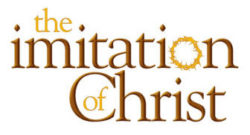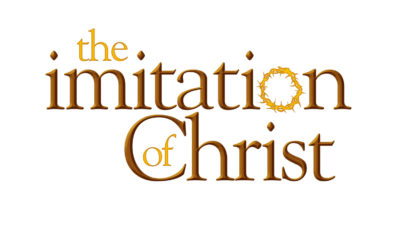What would you say if I told you most Christians have no idea what it means to be a Christian?
At first glance of such a statement, the notion that Christians aren’t living Christianity is offensive. Who am I to judge, right? But Jesus Himself says that we must “Enter in by the narrow gate; for wide is the gate and broad is the way that leads to destruction, and many are those who enter in by it. But small is the gate and narrow the road that leads to life, and only a few find it” (Matthew 7:13). Only few find the narrow path! What if in the midst of the hustle and bustle of the modern culture, the vast majority of Christians have not found the narrow path.
If someone totally ignorant of Christianity were to look at the modern notion of Christianity in the world today, they would most likely reduce Christians to people who are just called to be nice to everyone they meet. To be a Christian would mean to believe that this guy named Jesus is God and to live my life like everyone else lives their lives, but to be nice and smiley while doing it. Isn’t that kind of what we as Christians do today?
But that’s not Christianity. That’s a watered down, complacent version of the gospel that fails to satisfy the human heart, and will never transform human culture. Christians should stand out. Their lives should look different! If I blend into the modern world—if I act the same, speak the same, live the same, spend the same, as everyone else in culture—who is to say I am on the narrow path and not the wide path that leads to destruction?
To be Christian is to become another Christ. Yes, as a Christian I am anointed Priest, Prophet, and King; I am anointed like Jesus Christ was anointed with the Holy Spirit, and I am called to be another Christ, alter Christus. I am called to live like Jesus, to think like Jesus, to love like Jesus, to speak like Jesus, to see like Jesus, to be Jesus in this world.
To be Christian is to live radically in imitation of Jesus Christ. And in order to do this, the lifestyle and the virtues of Jesus must overshadow me. The early church understood this very well; they desired to imitate the perfect virtues of Jesus. His most perfect virtues became known as the Evangelical Counsels: Poverty, Chastity, and Obedience. These counsels teach us not only how to live our lives, but how to embrace Jesus’ lifestyle.
Jesus embraced poverty for the sake of the kingdom and lasting happiness. He embraced chastity for the sake of true and authentic love. He embraced obedience for the sake of authentic freedom. A common misconception by many Catholics is that only religious monks, friars, sisters, and priests are supposed to embrace the Evangelical counsels of poverty, chastity, and obedience. But the truth is, all the lay faithful are called to this way of life—each according to their own state of life.
It’s these very counsels that form us into holy men and women. The counsels allow us to imitate Jesus Christ.
In our current age, it has become all the more pressing that married men and women embrace the counsels of poverty, chastity, and obedience according to their married state. Why? I believe these three counsels are not only the means to holiness and the imitation of Christ, but at the same time, they are the answer to the divorce epidemic in our culture today.
The leading cause of divorce is financial problems—husbands and wives who argue over their finances—but if they embraced evangelical poverty and embrace their finances with the heart and the mind of Jesus, they would find so much freedom in their finances. Instead of building a comfort kingdom for themselves and becoming selfish with the gifts God has poured out upon them, they would embrace a sparing, sharing lifestyle founded on gratitude. The second leading cause of divorce is infidelity. If couples embraced God’s vision for self-giving love, evangelical chastity would unite husbands and wives to love one another as Christ has first loved us. And lastly, the third leading cause of divorce is the lack of communication. The word obedience comes from the Latin word meaning “to listen.” Evangelical obedience leads couples to carefully listen to the needs of one another and respond to those needs.
In Three Secrets to Holiness in Marriage, we look at what true and authentic holiness is, and how we are called to be transformed into Christ in the modern world. We look at how to embrace poverty, chastity, and obedience according to the married state of life. We invite couples on a self-guided retreat to discover who Jesus is and who He is calling you to be.
About the Author
Dan DeMatte is a Catholic speaker, retreat leader, and youth minister who founded and serves as executive director of the Damascus Catholic Mission Campus, the home of Catholic Youth Summer Camp where he previously served as director of evangelization.





